FACEBOOK SUCKS: The Many Reasons Why Facebook Sucks
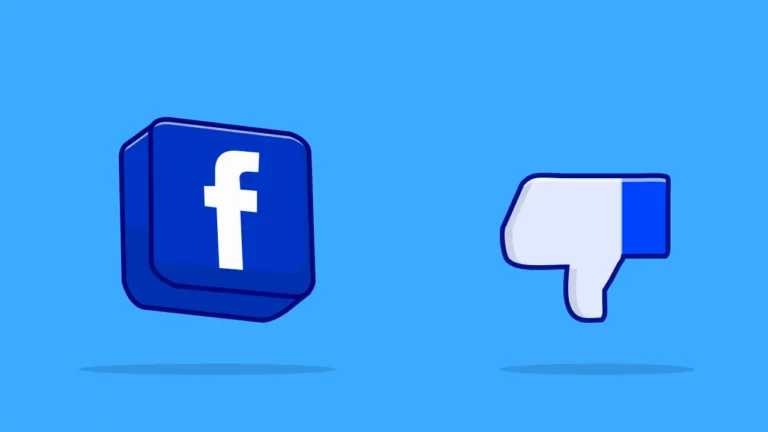
Credits for photos: Freepik, MockoFun, DALL-E-2
Facebook reflects everything that’s wrong with the world today. It’s not the source, but it sure helps amplifying bad vibes, polarization, vanity, sometime depression, conflicts, etc. Besides that, there are many things that are wrong with Facebook like privacy issues and application usability issues.
All these have made a lot of people say that Facebook sucks and make them want to leave Facebook. In this article I tried to list the top reasons why Facebook sucks. Some of these are very similar to what I mentioned in my other article about why Google sucks. This only goes to say that these tech giants kind of go the same way to becoming “evil”.
So, without further ado, here’s why I hate Facebook and I believe Facebook sucks!
#1 Facebook Privacy Concerns
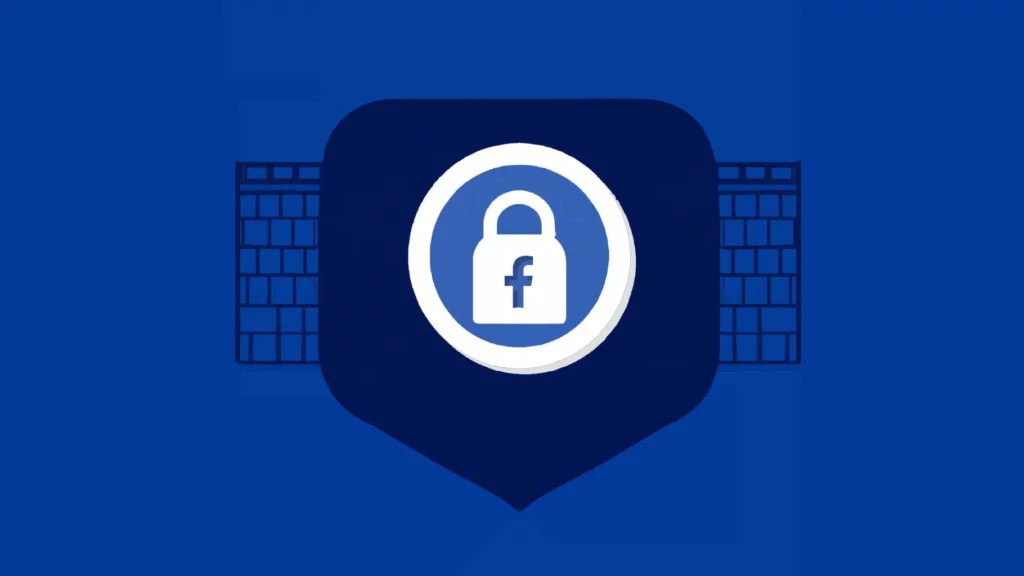
Tweet Reason #1 Why Facebook Sucks
Facebook has faced numerous controversies related to user privacy.
There are several privacy concerns associated with Facebook. One concern is that the company collects a large amount of personal data from its users, including their location, interests, and online activity. This data is used to personalize the content and advertisements that users see, which has raised concerns about targeted advertising and the potential for this data to be accessed by third parties without the users’ knowledge or consent.
Additionally, Facebook has faced criticism for its use of facial recognition technology and its role in the spread of misinformation and fake news. There are also concerns about the security of user data, as the platform has experienced several data breaches in the past.
#2 Facebook Misinformation And The Spread Of FAKE NEWS On Facebook
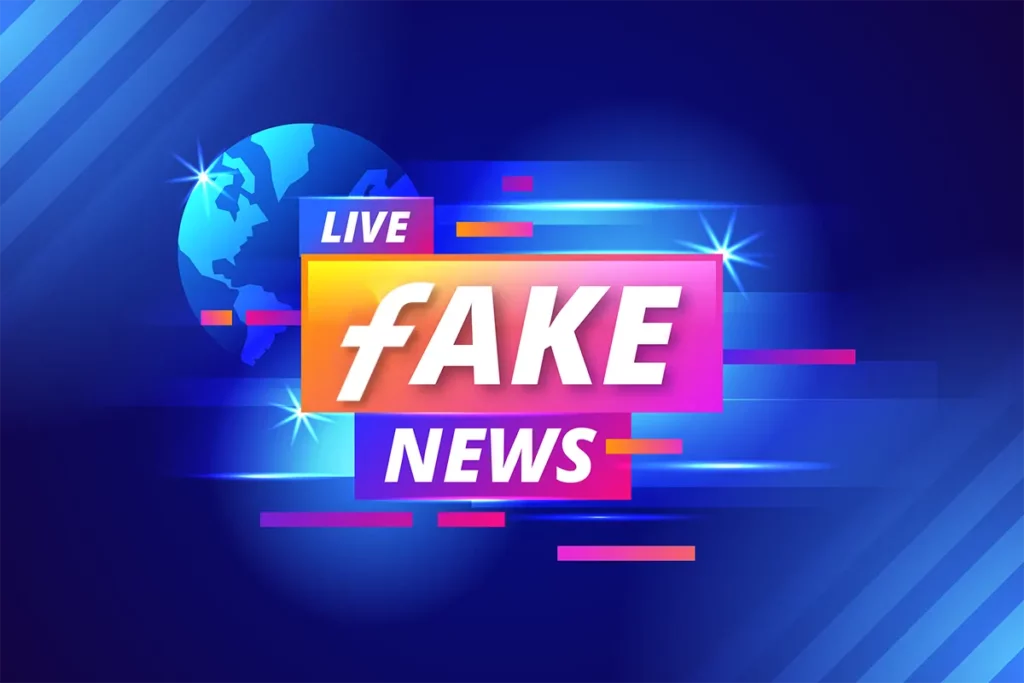
Tweet Reason #2 Why Facebook Sucks
You probably don’t realise this, but Facebook is the number one “spreader” of fake news online.
More than Google, more than Twitter.
Why do I say this?
A study led by a team of researchers at Princeton University showed that during the election of 2016, websites proven as fake news hubs got more than 15% of referred traffic from Facebook, while official trustworthy news outlets got less than 6%.
Basically Facebook misinformation is spread through sharing of fake news. People tend to trust information coming from somebody they know (or think they know). Another tendency is to trust or agree with information that is in line with one’s own opinions. This is called the “echo chamber” phenomenon.
Facebook tends to favor spreading of shocking and far-fetch information, even though most of the times this type of information proves to be fake.
#3 Facebook App Sucks
Tweet Reason #3 Why Facebook Sucks
Facebook App As A Whole
There are several reasons why some people may feel that the user experience of the Facebook application is poor. One reason is that the app can be slow and laggy, particularly on older devices or when there is a weak internet connection. This can make it frustrating to use and can lead to a negative perception of the app.
Another reason is that the app can be cluttered and overwhelming, with a large number of features, settings, and options that may be confusing or difficult to navigate. This can make it difficult for users to find what they are looking for and may lead to a feeling of frustration.
In addition, the app has been criticized for its design and layout, which some users may find unattractive or unappealing. This can make it less enjoyable to use and may contribute to a negative perception of the app.
Finally, Facebook has faced criticism for its handling of user data and privacy, which may cause some users to be wary of using the app or to have concerns about the company’s motives. This may negatively impact the user experience, as users may feel that their personal information is not being treated with the appropriate level of care and respect.
Overall, while the Facebook app is used by billions of people around the world, it is not without its flaws and has been the subject of criticism for a number of reasons related to user experience.
Facebook UI Sucks
One issue is that the UI may be cluttered and overwhelming, with a large number of features, settings, and options that can be difficult to navigate. This can make it confusing for users to find what they are looking for and may lead to a feeling of frustration or dissatisfaction.
Facebook UI is poorly designed or unattractive, which can make it less enjoyable to use and may contribute to a negative perception of the platform. Additionally, the UI may be difficult to use on certain devices, such as smartphones with smaller screens, which can make it frustrating to use the platform on these devices.
Finally, some users have reported that the UI is not always intuitive or user-friendly, which can make it difficult for new users to learn how to use the platform effectively. This can lead to a negative perception of the UI and may discourage some people from using Facebook.
While the UI of Facebook is used by billions of people around the world, it is not without its flaws and has been the subject of criticism for a number of reasons related to usability and design.
Facebook Search Function Sucks
The search function is limited in its capabilities, and may not always be able to find the information or content that users are looking for. This can be frustrating and may lead to a negative perception of the search function.
One other issue is that the search results may not always be relevant or accurate, and may include irrelevant or spammy content. This can make it difficult for users to find what they are looking for and may contribute to a feeling of frustration or dissatisfaction.
Additionally, some users have reported that the search function is slow, and may take a long time to return results. This can be annoying and may lead to a negative perception of the search function.
In conclusion, while the search function on Facebook can be useful in some cases, it has been the subject of criticism for a number of reasons, including its limited capabilities, relevance of results, and performance.
#4 Facebook Psychological Effects
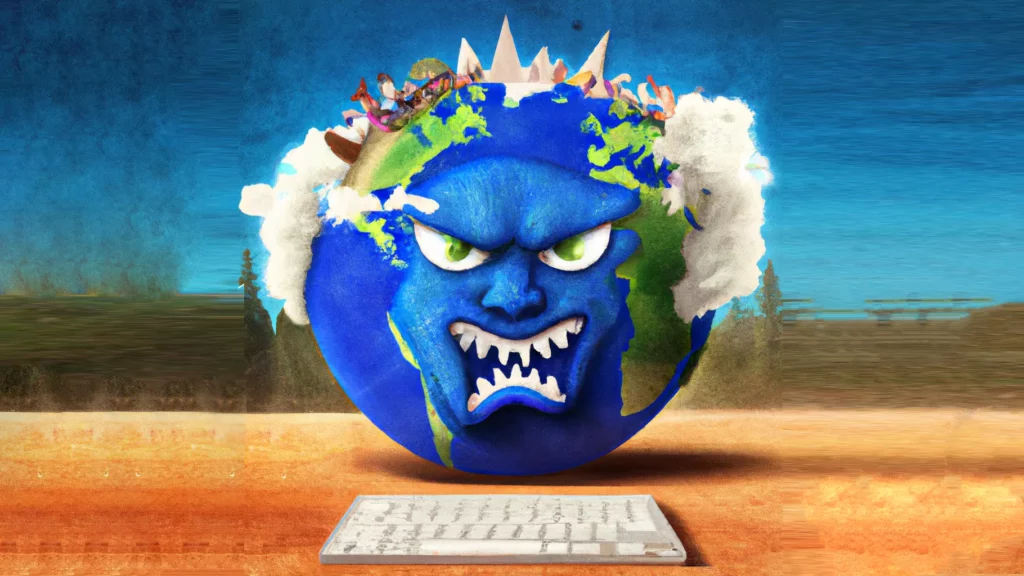
Tweet Reason #4 Why Facebook Sucks
Facebook has faced both criticism and legal action. Important concerns to consider are Internet privacy and its influence in the workplace. Facebook use can have negative psychological consequences such as feelings of sexual jealousy and a lack of attention. According to specialists, some social media addiction is equivalent to drug addiction.
Facebook is for narcissists, Facebook is for attention seekers. Facebook encourages validation seeking and narcissism. That can easily lead to very negative behavior like “I would do anything for a LIKE”.
So, Facebook sucks because it has devastating psychological effects on a large scale. Here’s just a few of them:
- Facebook addiction – people spending lots of hours on Facebook reported withdrawal symptoms when going offline as severe as anxiety attacks.
- Self-harm and suicide – there’s evidence about social media having a negative effect on people with suicidal tendencies. The way social media networks function, and especially Facebook, contribute to deepening depression and suicidal behavior, especially among teenagers.
- Envy – is a very powerful factor in people’s happiness level. Due to the way Facebook encourages the display of wealth, happiness, achievement, etc. even though the reality behind might differ, stimulates feelings of envy in Facebook users. This can often lead to states of depression.
- Divorce – more often than not, Facebook has become a cause for divorces. Users connecting on Facebook makes it almost too easy to slip into extra-marital relationships. Sometimes even the prospect of this happening and the amount of time people spend on Facebook can lead to tensions inside the marriage resulting in a divorce. Studies have shown that Facebook divorce cases are increasing.
#5 Facebook Is a Waste of Time
Tweet Reason #5 Why Facebook Sucks
There are several reasons why Facebook can be a time waster. One reason is that the platform is designed to be highly engaging and to keep users on the site for as long as possible. It does this through a variety of means, including the use of algorithms to show users content that they are likely to find interesting and notifications that alert them to activity on the site. As a result, it can be easy to lose track of time while using Facebook, especially if you are scrolling through your feed or engaging with other users.
Another reason why Facebook can be a time waster is that it can be addictive. The platform is designed to release dopamine, a neurotransmitter that is associated with pleasure and reward, when you receive likes, comments, and other forms of social validation. This can create a feedback loop in which you feel motivated to continue using the site in order to seek out these rewards.
Finally, Facebook can be a time waster because it can be distracting. If you are using the site while trying to work or complete other tasks, it can be difficult to stay focused on the task at hand. This can lead to a decrease in productivity and an increase in the amount of time you spend on the site.
#6 Facebook Cyberbullying
Tweet Reason #6 Why Facebook Sucks
Cyberbullying, or the use of electronic communication to harass, threaten, or intimidate others, is a serious concern on Facebook and other social media platforms. It can take many forms, including sending threatening messages, spreading rumors or false information about someone, posting embarrassing photos or videos without permission, or excluding someone from online social groups.
The anonymity and reach of the internet can make cyberbullying more prevalent and more difficult to address than traditional forms of bullying. It can be harder for victims to escape from or avoid online bullies, and the impact of cyberbullying can be more severe because the abuse can be seen by a larger audience and may be more difficult to delete or erase.
Cyberbullying can have serious consequences for both the victims and the perpetrators. Victims may experience depression, anxiety, and other mental health issues, as well as difficulty sleeping, eating, and functioning at school or work. Perpetrators may face criminal charges and other legal consequences for their actions.
There have been criticisms that Facebook does not do enough to prevent cyberbullying on its platform. Some people argue that the company is not sufficiently proactive in identifying and addressing cases of online abuse, and that its reporting and blocking tools are insufficient to effectively deal with the problem.
Others have pointed out that Facebook’s business model, which is based on maximizing user engagement and advertising revenue, may not be compatible with prioritizing the safety and well-being of its users. As a result, the company may be more likely to focus on improving the user experience and increasing its profits, rather than on implementing measures to prevent cyberbullying.
In addition, some people have raised concerns that Facebook’s algorithms, which are designed to show users content that they are likely to find interesting or engaging, may actually contribute to the spread of cyberbullying by amplifying and promoting abusive or hateful content.
It is important for Facebook users to be aware of the risks of cyberbullying and to take steps to protect themselves and others from online abuse. This can include setting privacy settings to limit who can see your posts and content, blocking or reporting users who engage in abusive behavior, and seeking support from trusted friends, family members, or professionals if you are a victim of cyberbullying.
#7 Facebook Is More About Branding & Promotion
And Less About Connecting Friends
Tweet Reason #7 Why Facebook Sucks
When Facebook started in 2003, its purpose was to connect people. First students in the Harvard campus, then expanded to other colleges and then it grew into a worldwide social platform.
Little by little though, it transformed.
Instead of using it solely for connecting with friends, people started using Facebook for personal branding and commercial promotion.
#8 Too Much Advertising
Tweet Reason #8 Why Facebook Sucks
Facebook saw the huge potential of people trying to promote their businesses on the platform and did everything possible to monetize on this by introducing Facebook ads in 2007.
But, this is becoming a bit too much.
You have sticky ads on the right hand side, but you also have ads in the timeline view, mixed with content. The ads are so “in-your-face” that it’s sometimes really hard to browse through your content.
Also, as a Facebook page admin, your being constantly harassed to purchase ads for promoting your content. A while back, I wrote an article about Facebook ads performance and whether it’s actually worth spending money to promote your business on Facebook.
Spoiler alert: it’s not!
#9 User Activity Meddling
Based on what you share and with whom you interact and other activities, Facebook creates a profile for you.
It thinks it knows you better than you know yourself. That is why only certain friends, products and stories keep showing up in your news feed. Eventually this can become a form of mind control in the name of “improved user experience”.
#10 Facebook Censorship
The Facebook Censorship Policy is in theory designed to protect the user community and officially lists these things as not allowed on the platform:
- Nudity or other sexually suggestive content.
- Hate speech, credible threats or direct attacks on an individual or group.
- Content that contains self-harm or excessive violence.
- Fake or impostor profiles.
- Spam.
#11 The Facebook Decline
All businesses want to grow. But, Facebook’s growth has significantly slowed down at the end of 2021 and beginning of 2022.
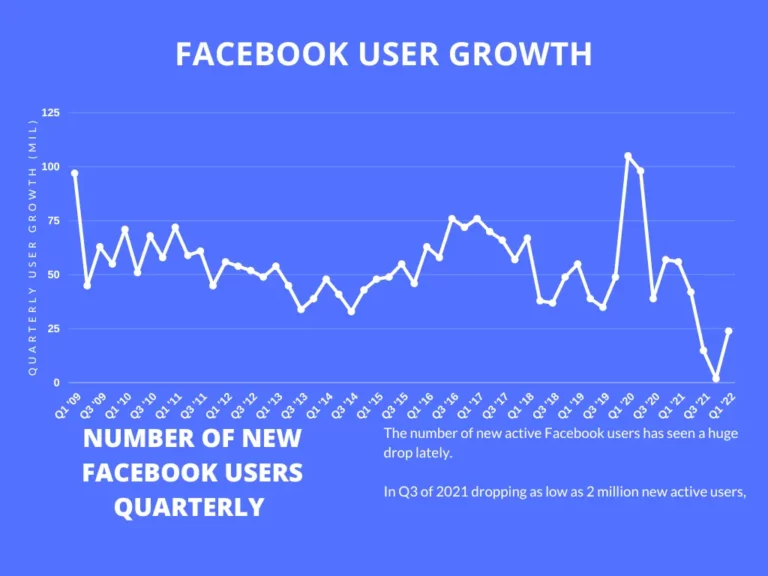
Notice the 2021 Q3 drop to around 2 million new active users world wide.
You might say: “Wait a minute, how can a growth of 2 million users mean a Facebook decline?”
Well, lack of growth means a diminishing of revenues for the company. And, in February 2022 when Facebook announced their revenues and as a consequence their stocks (NASDAQ:META) took a massive -26% hit in one day. By mid June of 2022 the year to date drop was of about -40% which translates a capital value loss of around $400bn (yes, billions).
OUCH!
#12 Facebook Has Become
A Brutal Arena For Political Debates
Facebook is deeply involved into politics. Not only through the Facebook political ads, but also through the firey debates sparked between political partisans in posts and comments.
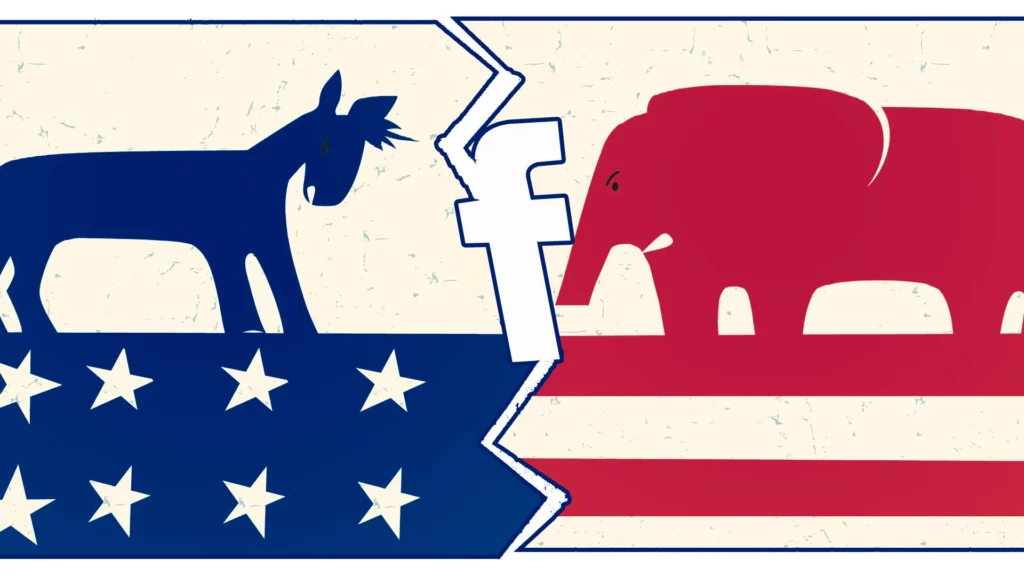
Things really culminated with the big scandal over Russian influence of 2016 elections via Facebook amongst others. The Russian Internet Research Agency, a company with deep ties to the Russian state apparatus ran substantial campaigns of Facebook political ads and other activities that tried to sway opinions.
Funny enough, the technique involved pushing messages consistent with both left and right wing audience. The purpose being to build an audience taking advantage of the Facebook algorithm. Once enough audience was built on one side or another, messages were pushed to it to slowly move things in the desired direction.
In one word: manipulation
It is currently unknown how aware Facebook was about this. Either way, it really sucks!
#13 Facebook Sharing And Re-sharing With
Little Or No Regards To Copyright
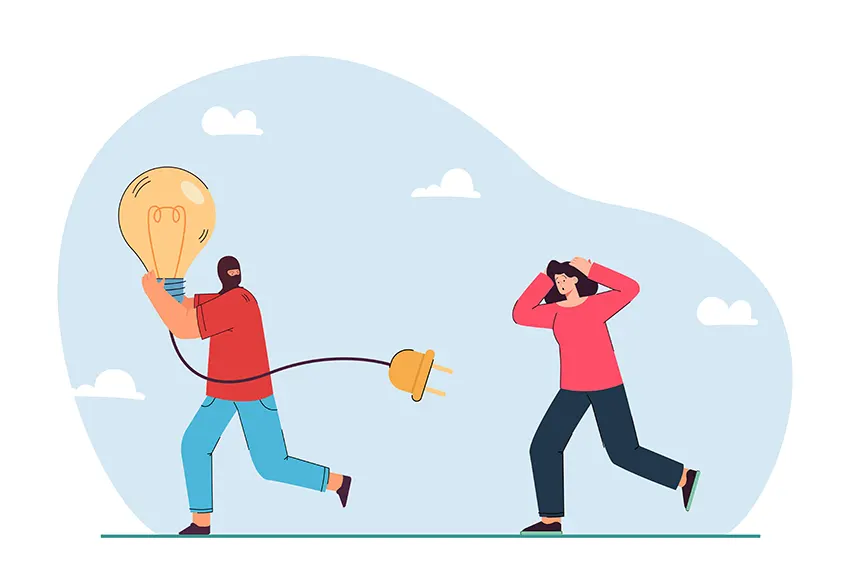
You find an image online, you like it and you share it with friends.
No harm done.
But then somebody re-shares it, and then someone else and so on. At some point somebody even decides to use it in a post promoting their business.
That’s not cool anymore.
Being a graphic designer myself, copyright is probably the only instrument I have to protect my work (like texture images or Photoshop addons). Facebook has little or no regard to this aspect.
To get an idea, you can report a Facebook post if you think that intellectual property rights have been infringed, BUT the report reason is tucked in under “Other” reasons. On any other platforms with user created content, this is the number ONE option when reporting a piece of content.
#14 Facebook Malware Spreading Through Facebook Messenger
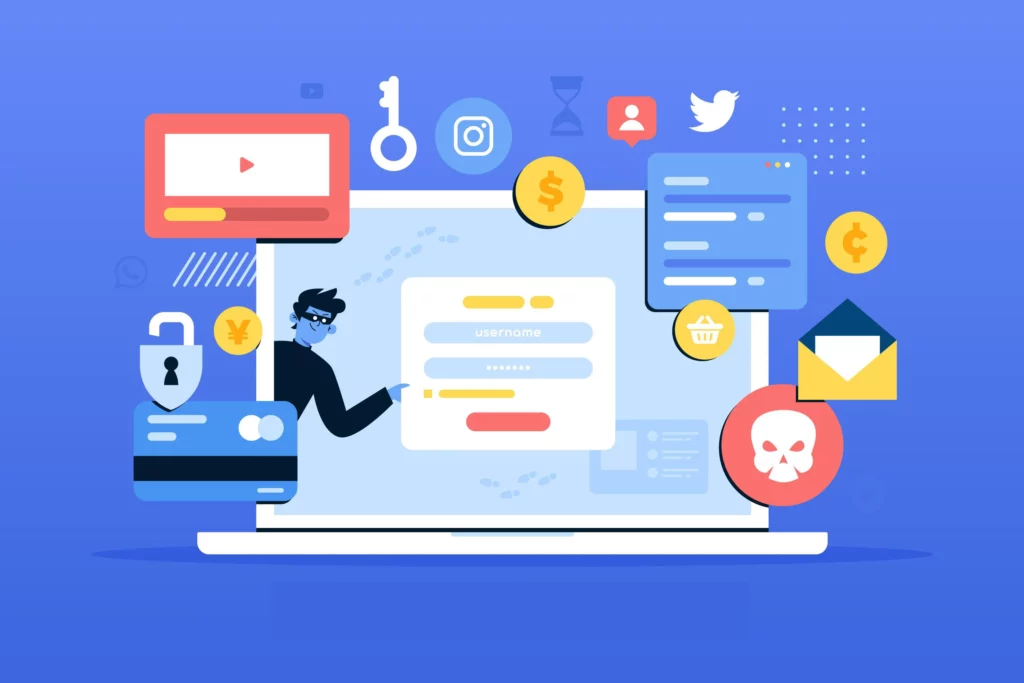
It’s so easy to get infected with malware or Facebook viruses through the Facebook Messenger.
Any Facebook user can send messages via Messenger. And these messages can contain URL links, which are sometimes not what you expect.
What happens when you click on a malicious link on Facebook?
If you are unlucky enough or not careful enough to click on these kind of malicious links you device or computer might get infected, hijacked or even locked for ransom.
Another kind of danger is phishing. Phishing is a form of online scam that aims at obtaining user data by posing as somebody else. For example, you click on a malicious link, land on a page identical to the Facebook login page where you are asked to input your credentials. If you do that, you are basically tricked into revealing your user and password which means you give away your Facebook account.
Here’s what Facebook says you can do about malicious software. As for other stuff, Facebook sucks at user support for this. Buried in the Privacy settings of your Facebook account you have the option of blocking messages from users that are not your friend, or set it up such that they request permission to send you messages.
But, is Facebook doing anything to prevent spreading malicious links?
#15 Young People Say Facebook Sucks Because Facebook Is For Old People
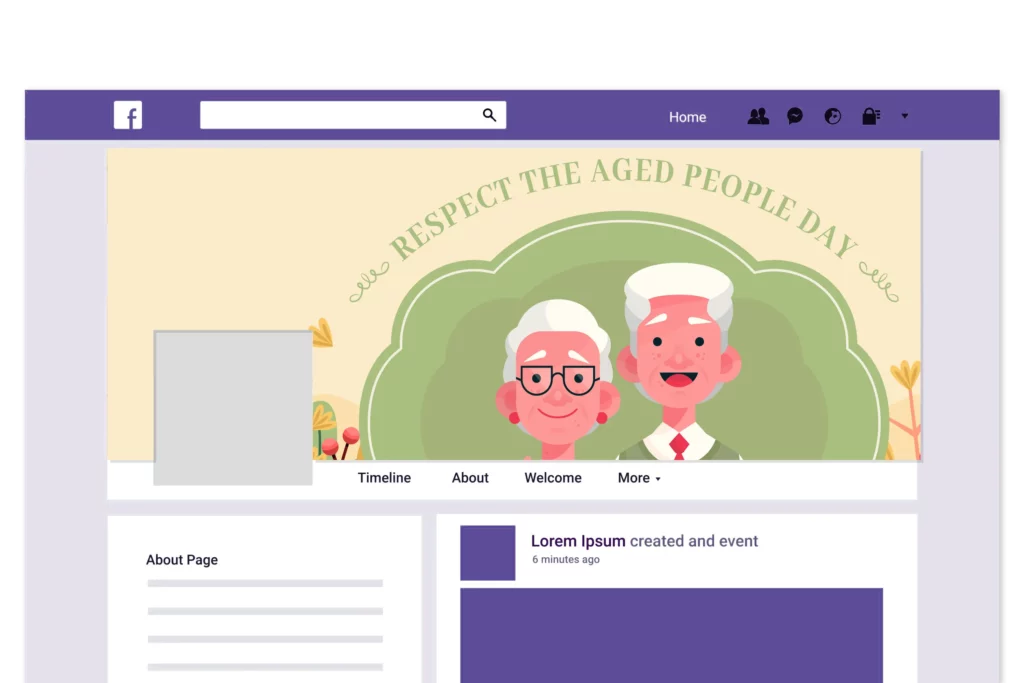
Some people might go even further and say that Facebook is for losers. There are some people who have nothing else to do, but to stay logged on to Facebook. They either update their status every hour, or just see what their ‘friends’ are doing.
Young people think Facebook is for old people (over 45) and think of the content found on Facebook as boring, negative and misleading.
In Conclusion: Facebook Sucks!
It might sound as a harsh judgement to say that Facebook “sucks” overall, as it is a platform used by billions of people around the world and has many features that are useful and enjoyable for many users.
However, it is also true that Facebook has faced criticism for a number of issues, including concerns about privacy, the spread of misinformation, and the impact it can have on mental health. Additionally, there are specific aspects of the platform, such as the user interface, search function, and application performance, that have been the subject of criticism from some users. It is important to recognize that no platform is perfect and that all social media platforms have their own unique set of strengths and weaknesses.
So, it’s up to the users to decide whether they want to use Facebook or not.
